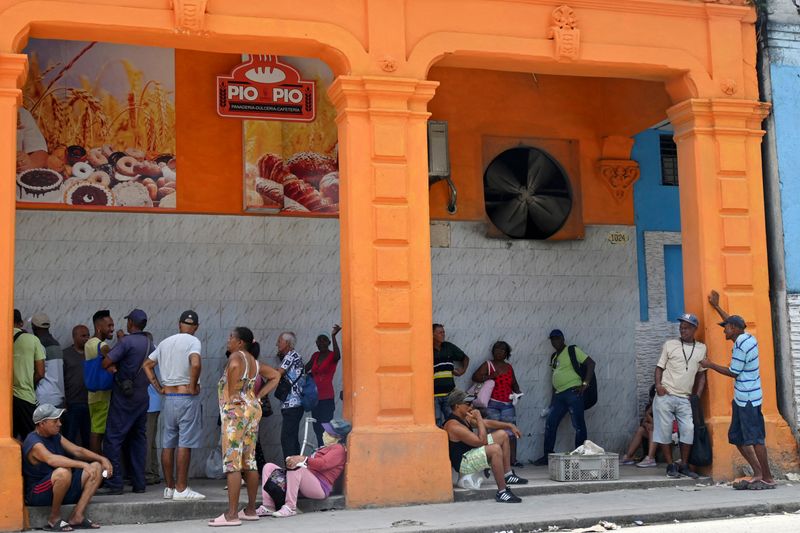HAVANA (Reuters) - Cuba is tightening regulations on fledgling private businesses, reining in profits and beefing up oversight as the government wrestles with how best to manage fast-growing private enterprise in the communist-run country.
Cuban authorities two years ago lifted a ban on private companies, in place since early in former leader Fidel Castro`s 1959 revolution, but the government now says some of those businesses have gotten out of hand, contributing to snowballing inflation and economic crisis.
Cuba`s Council of Ministers, the highest administrative body on the island, held an "extraordinary" session this week during which it proposed six decrees aimed at "bringing order" to the country`s growing private sector, state-run media reported late on Wednesday.
One of those proposals will create a new "national institute" to oversee non-state businesses, the report in Cuba`s Granma newspaper said.
"This is in no way a crusade against (small business)," said Prime Minister Manuel Marrero. "This isn't about new prohibitions or taking a step backwards, this is about regulating."
A spate of new regulations and enforcement actions, however, signal growing tensions between privately held businesses and state-run companies that have long held monopolies across the economy.
Earlier this week, the Ministry of Finance and Pricing capped prices on six key goods imported by private businesses - chicken, vegetable oil, powdered milk, laundry detergent, pasta and sausages - in a bid to slow soaring inflation.
A government resolution issued Monday also capped profits on those goods at 30 percent, a move officials said was necessary to contain prices but which some outside economists believe could lead businesses unhappy with such limits to stop selling those products.
Authorities on Wednesday conducted 1,079 on-site inspections countrywide to enforce the new caps, and said 393 companies, or 36%, were in violation of regulations.
Tax authorities separately said they had shuttered 15 private businesses for accounting irregularities and had identified 600 more suspected of "possible fiscal evasion."
Private enterprise has boomed in Cuba in the last two years, with more than 11,000 businesses now selling food and household products as well as providing construction and tourism services.

Such businesses have proved a lifeline for some as government rations and subsidized goods have become scarce, though high prices keep them off limits for most Cubans.
The island's economy has been hard hit by factors including the pandemic, U.S. sanctions and an inefficient, state-dominated model plagued by bureaucracy and corruption.